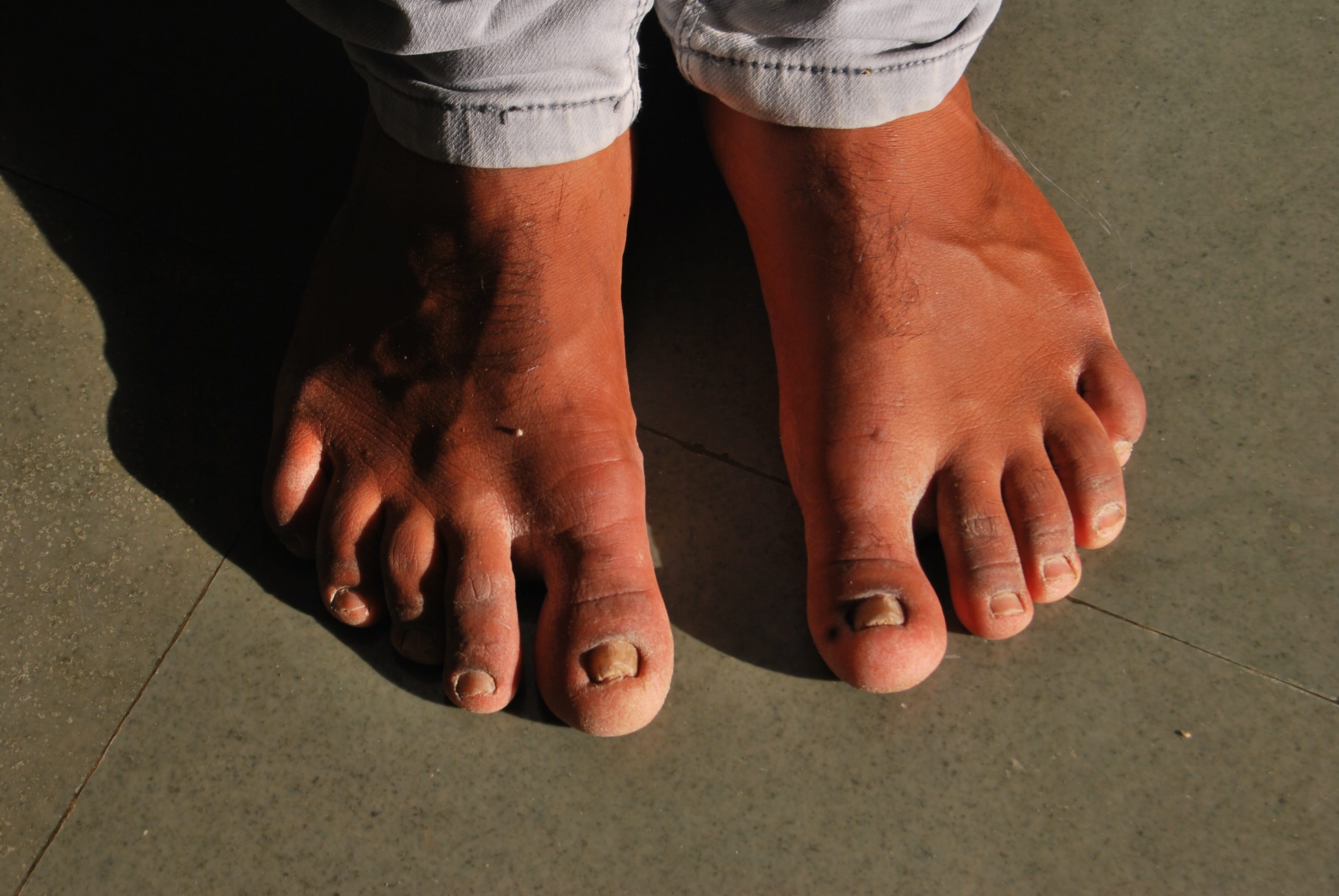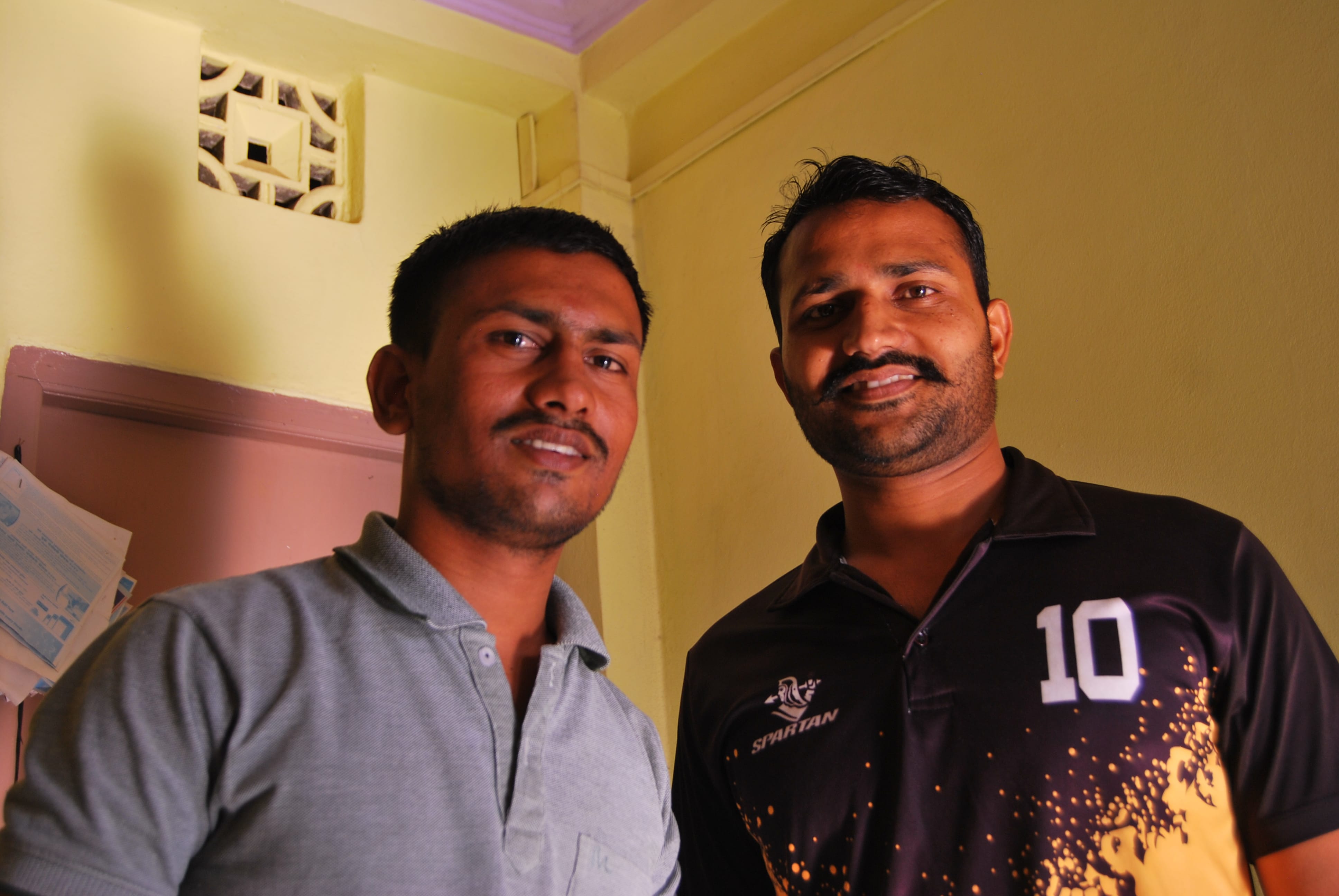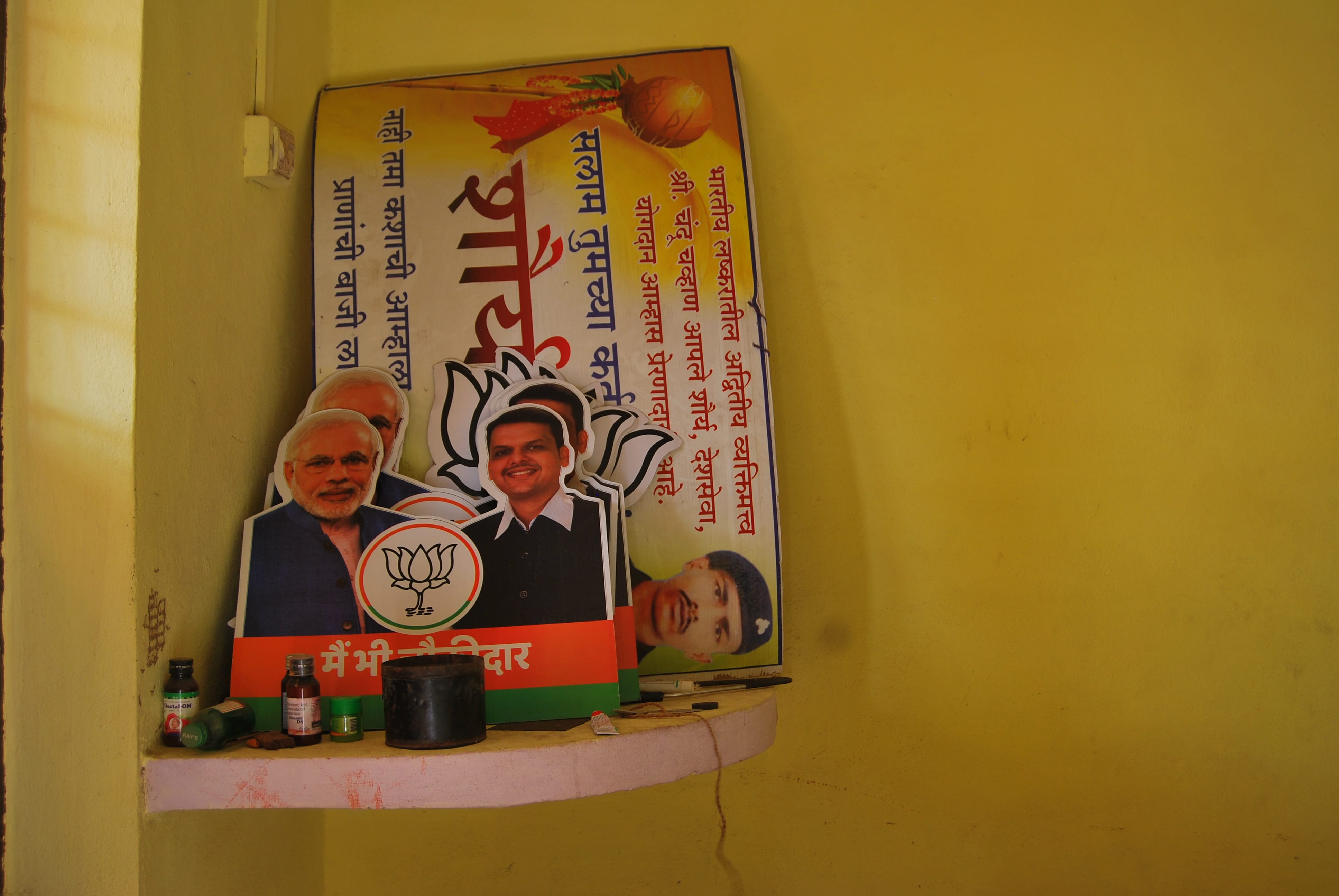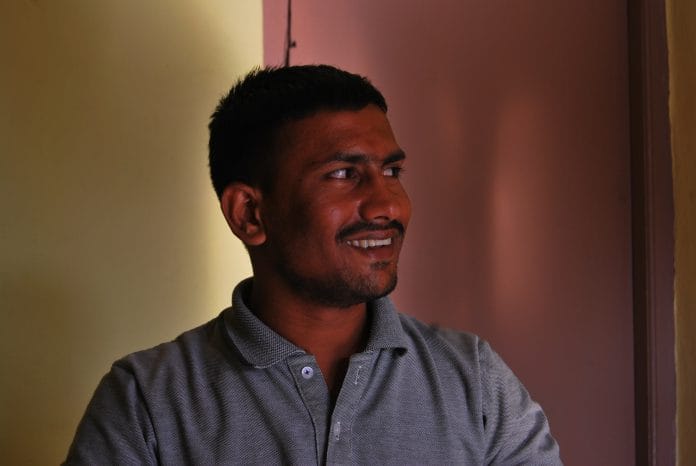Bohrivir (Dhule district, Maharashtra): Two Indian soldiers were captured and spent time in Pakistani captivity in the last two-and-a-half years. One of them is a fighter pilot and an Air Force wing commander. The other, a mere sepoy or soldier in the Army.
The story of Wing Commander Abhinandan Varthaman, who returned home to a hero’s welcome after 60 hours in enemy territory earlier this year, is still the stuff of headlines and election campaign speeches.
Sepoy Chandu Chavan’s is a story of stark contrast and one very few even remember. He spent three months and 21 days in Pakistani captivity, was court-martialled on his return and sentenced to 89 days in prison.
To be sure, Chavan doesn’t grudge Varthaman his glory. But it seems to pinch him that his own capture and release from Pakistan wasn’t considered as much an act of courage and patriotism as that of the fighter pilot.
Chavan was serving with the 37 Rashtriya Rifles and was posted near the Line of Control in Mendhar district of Jammu and Kashmir when he crossed the LoC on 29 September 2016 — the same day as the surgical strikes, when Indian special forces entered Pakistan-occupied Kashmir (PoK) undetected and targeted terror launchpads as retaliation for the terrorist attack on the Indian Army facility in Uri.
It is still not very clear why Chavan, who was 21 years old at the time, went across the LoC into enemy territory. There are several theories still discussed and the soldier himself does not offer to clear the air.
But the fact is that he spent nearly four months in captivity, was returned by Pakistan in January 2017 as a goodwill gesture, was court-martialled and pled guilty to leaving his post without informing his commanding officer, and sentenced to three months in prison.
Chavan was subsequently sent for a three-week psychiatric observation, cleared of any problems, and convinced to stay back in the Army despite requesting for early retirement.
Two years on, the memories haven’t faded. But fresh India-Pakistan tensions and the capture of Varthaman earlier this year brought it all back for him.
Also read: Never mind Balakot, IAF is worse off than Pakistan Air Force on pilot strength
‘Did it for the country’
At the time of his capture, Pakistan had claimed that Chavan was an Army deserter who had sought refuge in Pakistan, leading many to dismiss him as a traitor. This is one of the first things Chavan sought to refute strongly when ThePrint met him in his village of Bohrivir in Dhule district of Maharashtra.
“If I wanted to hide or escape from my post, I would have come home. After being held in Pakistan and getting tortured, I don’t like to hear this,” Chavan said.
“I don’t like it when people always ask me why I crossed the border, as if there was a picnic over there. Enemy territory is scary. Whatever happened, I did for the country. Two years have passed, but if I had to go through the ordeal again, I would.”
A senior Army officer, who spoke to ThePrint on the condition of anonymity, said there were several “theories” why Chavan went across the border. One is that he fought with a fellow soldier and walked across fully armed to prove a point. Another is that he left to avenge the deaths of those killed when the Army’s brigade headquarters in Uri was attacked by Pakistani terrorists on 18 September 2016.
A third, which has been widely reported, is that he lost his way while moving from post to post.
Story of ‘torture’
When Chavan crossed the Line of Control, he had been serving in the Army for three years. It was around 10.30 am when he was captured by Pakistani soldiers.
Although his crossing over coincided with the 2016 surgical strikes, he was not involved in any action at the time, but Pakistani soldiers were apparently convinced he was.
“I was attacked from the back, like this,” Chavan said, extending his arms behind his head, the base of his palms against his temples. “I got very dizzy, and then they put a black cloth on my face, so I couldn’t see where they were taking me.”
He was held captive and kept in a small and windowless cell, the walls painted with bulls-eye circles, and the ceiling reminiscent of a steeple.
A board featuring pictures of other torture victims lined one side of the room, some with body parts cut off, others with bloodied faces, he said.
He recounted the torture he suffered without flinching.
“They pulled out my toenails,” he said, adding that he was beaten up incessantly and made to starve, had the soles of his feet struck with a wooden baton, and kept shackled at most times.

Chavan’s brother Bhushan, who is also in the Army, was the first to hear of his capture. He was posted in Jamnagar at the time, and received a phone call on the night of 29 September 2016 from a commanding officer at the LoC, who told him what had happened.
Frantic, Bhushan called his wife, who was pregnant at the time, and gave her the news.
“The call was on speakerphone. As I was telling her what had happened, my grandmother overheard. She immediately died of shock,” Bhushan told ThePrint.
The mention of their grandmother’s demise is enough for Chavan’s eyes to well up. It is the only time he expresses regret.
“She practically raised us. I loved her very much,” he said. “I wish she was alive to see me now… She would be proud of me.”
Also read: IAF Wing Commander Abhinandan didn’t break, share military info despite Pakistani “interrogation”
Court-martialled, hospitalised on return
If Chavan is alive and well today, it is because of his brother’s efforts. One month after his capture, Bhushan wrote letters to Dr Subhash Bhamre, the MP for Dhule and the Minister of State for Defence in the Narendra Modi government, then-Defence Minister Manohar Parrikar, External Affairs Minister Sushma Swaraj, and the Prime Minister’s Office, urging them to negotiate his release.

“When Indian soldiers go across the border, they rarely come back alive. I began researching cases of Indians in captivity there, and I read about Sarabjit Singh and Captain Saurabh Kalia. I couldn’t face the thought of Chandu meeting the same fate as them,” Bhushan said.
Singh was a civilian accused of terrorism and spying for the Indian government, though no proof substantiated these claims. He was on the verge of being returned to India in 2013 when he allegedly succumbed to wounds inflicted during an attack on him in a Lahore prison.
His body was flown back to India, with vital organs missing. Kalia was a prisoner from the Kargil war who was brutally tortured and killed in captivity.
Upon his return, Chavan was immediately sent for an investigation to Amritsar, court-martialled, and given an 89-day sentence.
An officer told Hindustan Times that Chavan appeared “traumatised and incoherent”, prompting the Army to send him to a military hospital in Khadki, Maharashtra, for a three-week psychiatric observation.
He was eventually cleared of any psychiatric problem, but his ID card and mobile phone — suspended during the investigations and hospitalisation — are yet to be returned, he said. Despite sending two RTI requests, he doesn’t know why. Legally, sepoys are not allowed to carry out their duty without their ID cards, but he has been asked to continue his work.
Nearly four months after his return from Pakistan, an overwhelmed Chavan wrote to his commanding officer, requesting for early retirement.
“Ultimately, I was convinced to stay as I need a pension plan — I failed my 12th standard. I also want to continue serving the country,” he added.
Also read: Untold story of an IAF Canberra & its crew, 60 years before Wing Commander Abhinandan’s MiG
Avowed BJP supporter
After Wing Commander Varthaman returned home to a hero’s welcome, and national security became the central theme of the Lok Sabha election campaign, some BJP members appropriated Varthaman’s release as its own victory through campaign posters. Even PM Modi struck a similar note in some campaign speeches.
Chavan’s family has mixed feelings about the invocation of armed forces personnel for election campaigns. But the family’s political leanings are very clear.
Fluttering atop their house is the saffron-and-green flag embossed with a lotus. Chavan himself is an avowed Bharatiya Janata Party (BJP) supporter, and credits the party for his safe return home.
“If it weren’t for Dr Subhash Bhamre and the Modi government, I wouldn’t be alive, giving you this interview,” Chavan said. Bhamre is seeking re-election to the Lok Sabha and Dhule voted on 29 April.
Personnel of the Indian armed forces are discouraged from endorsing political parties, but that doesn’t stop the Chavan brothers from praising the BJP. “Two [soldiers] have been captured by Pakistan under the current BJP government — Chandu and Abhinandan Varthaman — and both have returned safe,” said Bhushan.

Chavan is happy to grace any political event he is called for — as long as the BJP hosts it.
“Politicians keep inviting Chandu as guests for their rallies,” said Bhushan, grinning. “Subhash Bhamre still keeps in touch with us. This village is very popular now.”
It doesn’t seem to bother Chandu Chavan that the ruling party might use his story as a point of leverage to garner votes. Instead he seems to enjoy the attention. “I like going to Mumbai because people recognise me there,” he said. “I was even approached for a movie based on my story.”
Also read: What Wing Commander Abhinandan told his wife when he called while in Pakistan’s custody







The casualties on 27th Feb, remains 1 MIG21 and 1 Mi17 (friendly fire) . I think the skirmish ended up with Pak taking an upper hand, but IAF should have imposed high costs on Pak, which I think we Indian failed to do so(although we claim that an F16 was downed).
It is so embarrassing when a country like pak 5 times smaller and economy struggling has not been given an adequate response from Indian side. Indian analysts said we attacked a terror camp, now what will Pak do to retaliate? (It will not attack military estd /civilian target). But they did attack our military installations very next day (although nothing was hit).
Finally India de-escalated it not Pakistan
This story once again reminds me the one about Abhinandan. Now that the ambers have cooled down, I must say that quite, quite frankly I found Abhinandan’s case an embarrassing one. I may be entirely wrong, but I think the claim that HE shot down the F-16 was appended to his story as an afterthought. Those like me who were watching the TV that day would remember that only some minutes or perhaps an hour later it started getting told that it was Abhinandan who did it. That was, I guess, because the Indian government just did not want to accept that Pakistan had scored a brownie point by taking one of our pilots as hostage, so they tagged a heroic act to the captive. Indian government was hell bent on projecting Balakot as unmitigated victory, and Pakistan at that point was only interested in de-escalating the tension, so it did not contradict the Indian story. That F-16, in my opinion, was shot down by ground fire, or some other Indian fighter jet. This is just a guess. A huge apology and hug to Abhinandan if I’m wrong.